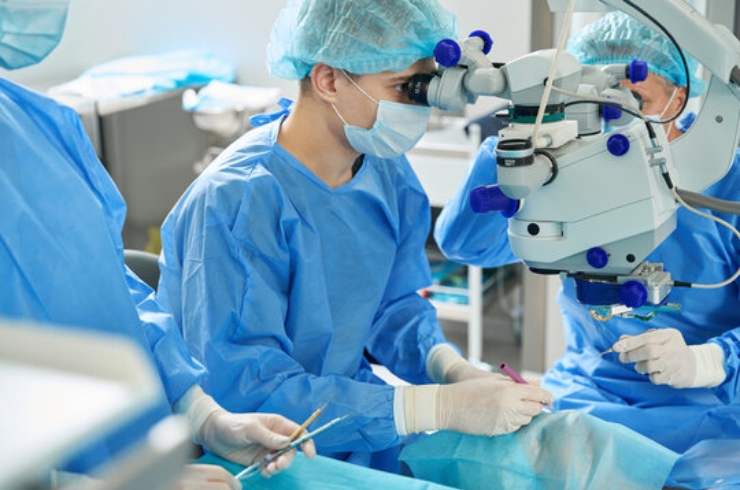Glaucoma Treatment and Management

Glaucoma Treatment and Management: Protecting Your Vision from Permanent Damage
Glaucoma is a serious eye condition that can lead to permanent vision loss if left untreated. It occurs when the pressure inside the eye (intraocular pressure) becomes elevated, damaging the optic nerve responsible for transmitting visual information from the eye to the brain. Often referred to as the “silent thief of sight,” glaucoma can develop gradually without noticeable symptoms until significant damage has occurred. That’s why early detection and proper management are essential in preventing irreversible vision loss.
What is Glaucoma?
Glaucoma is not just one condition but a group of eye diseases that can cause progressive damage to the optic nerve. The most common type is Primary Open-Angle Glaucoma, which typically develops slowly and painlessly. Other types, such as Angle-Closure Glaucoma and Normal-Tension Glaucoma, can also affect vision but may have different symptoms and risk factors.
The main risk factor for glaucoma is increased intraocular pressure, though it can also occur with normal pressure. Genetics, age, and medical conditions like diabetes also play a significant role in the development of glaucoma.
Treatment and Management of Glaucoma
While there is no cure for glaucoma, early diagnosis and appropriate treatment can help control the disease and preserve vision. The treatment typically focuses on lowering intraocular pressure to prevent further damage to the optic nerve.
1. Medications (Eye Drops)
The first line of treatment for glaucoma is often prescription eye drops. These drops help lower the eye pressure by either reducing the amount of fluid the eye produces or increasing the drainage of fluid. Common medications include:
Prostaglandin analogs: Increase the drainage of fluid from the eye.
Beta-blockers: Decrease the production of fluid in the eye.
Alpha agonists and Carbonic anhydrase inhibitors: Also reduce fluid production or increase drainage.
2. Oral Medications
In some cases, oral medications may be prescribed in combination with eye drops to further reduce eye pressure.
3. Laser Surgery
For patients who do not respond well to medications, laser surgery may be an option. There are different types of laser procedures, including:
Laser Trabeculoplasty: A procedure used for open-angle glaucoma to help improve fluid drainage from the eye.
Laser Iridotomy or Iridoplasty: Used in angle-closure glaucoma to create a hole in the iris, allowing fluid to flow more freely.
4. Surgery
In advanced cases of glaucoma, or when laser treatments and medications don’t work, surgery may be necessary. The most common type of surgery is Trabeculectomy, where a new drainage channel is created in the eye to reduce pressure.
5. Drainage Implants
In some cases, a small drainage device is implanted in the eye to help fluid drain and reduce pressure. These implants are particularly helpful in cases of advanced glaucoma or when other treatments have failed.
Regular Monitoring and Follow-up Care
Glaucoma requires long-term management. Regular check-ups are essential to monitor intraocular pressure and ensure that the treatment plan is working effectively. Dr. Rujuta Shelat Dalal, a highly experienced ophthalmologist, emphasizes the importance of consistent follow-up visits to manage the condition properly and prevent further damage.
Why Choose Dr. Rujuta Shelat Dalal for Glaucoma Treatment?
Dr. Rujuta Shelat Dalal specializes in comprehensive glaucoma treatment and management, providing personalized care to meet each patient’s unique needs. With over 13 years of experience in ophthalmology, she uses advanced diagnostic tools and treatment options to ensure the best outcomes for her patients. Whether it’s through medication, laser therapy, or surgery, Dr. Rujuta focuses on preserving your vision and maintaining your quality of life.
Conclusion
Glaucoma is a leading cause of blindness, but with proper treatment and ongoing management, its progression can be controlled. If you have been diagnosed with glaucoma or are at risk, it’s essential to seek professional treatment and adhere to your prescribed regimen. Dr. Rujuta Shelat Dalal offers expert care for glaucoma patients, using state-of-the-art techniques and individualized plans to help manage the condition and protect your vision for the future.